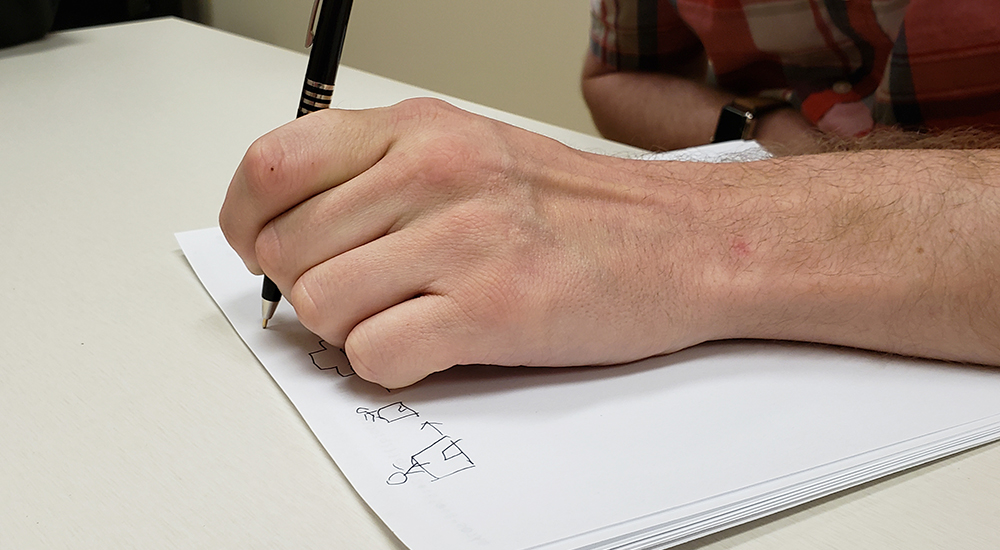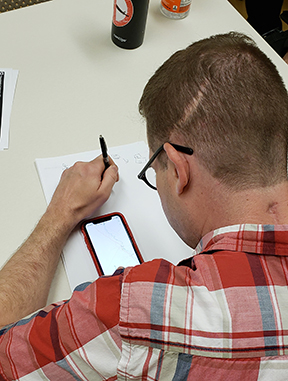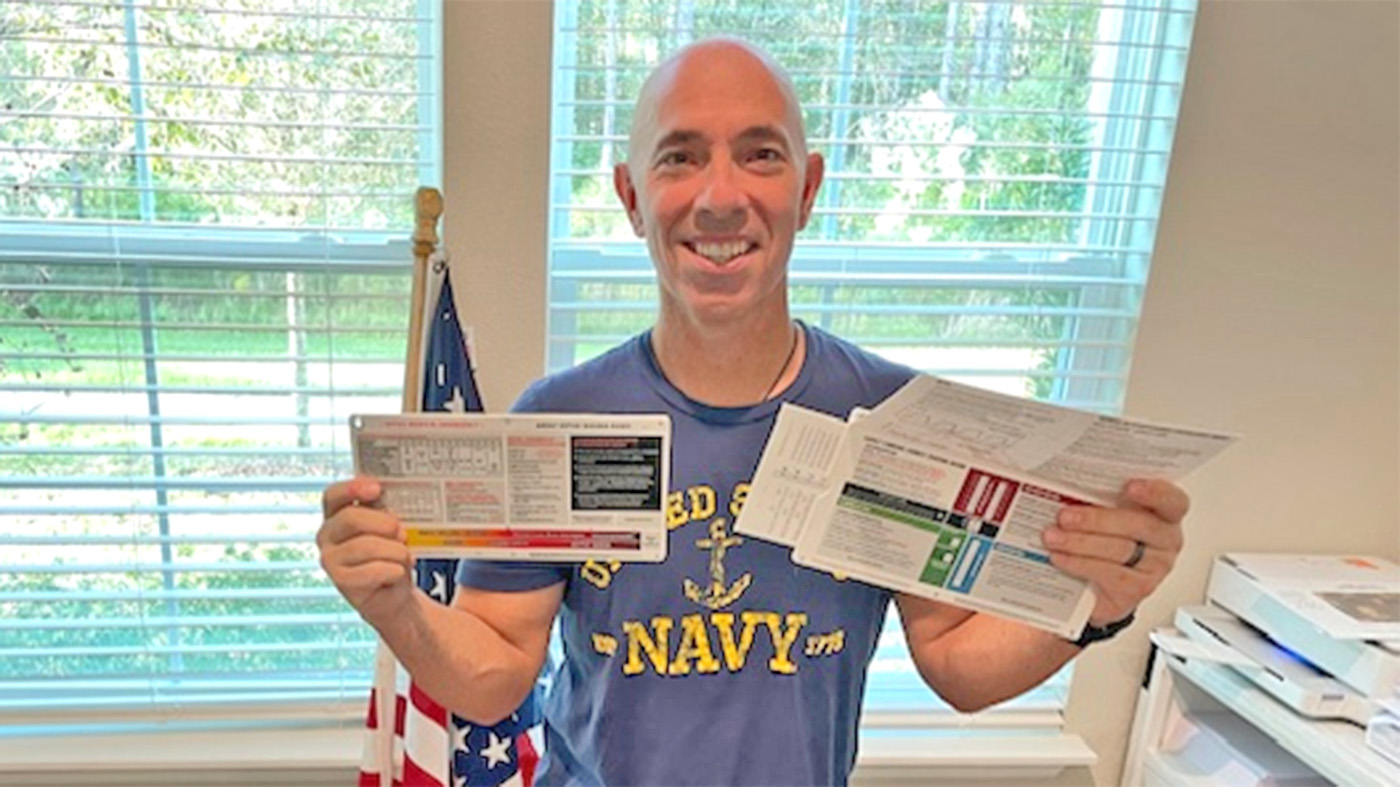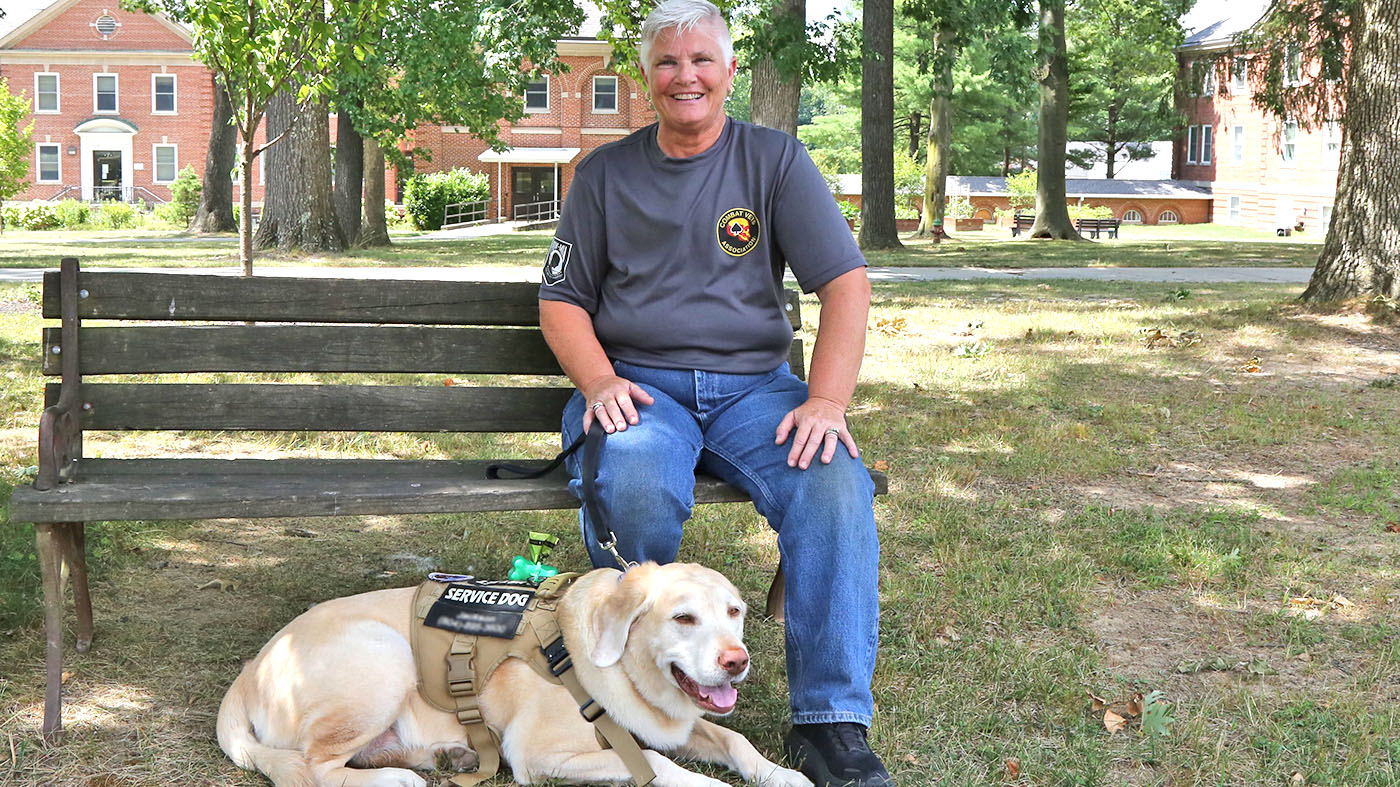On January 18, 2008, a bullet pierced Russell “Russ” Kaufmann’s neck while he was on patrol in Iraq. It was the only place on this body not covered by a helmet or armor.
“I wasn’t scared. I was thinking, ‘This is it, I’m going to die.’”
While the bullet tore his flesh, it was the massive blood loss that did the most damage. It caused two strokes. Russ credits his survival to the excellent care he received in Germany and the Walter Reed National Military Medical Center. He also credits his determination to live. But his life changed forever.
After multiple surgeries and strokes, he is a man unable to talk and has several physical limitations. Those limitations include aphasia, weakness on the right side of his body and difficulty with his vision. Aphasia is an impairment of language, affecting the production or comprehension of speech and the ability to read and write.
Suddenly, Russ became a man who can see and understand the world, but no longer fully engage with it.
Finding alternative ways of communicating
Russ receives treatment at the James A. Haley Veterans’ Hospital Speech Language clinic in Tampa. Russ is working with a VHA speech language pathologist to restore as much speech and language as possible. He also is finding alternative ways to communicate.
“Oh… he’s amazing for sure. He has a memory like a steel trap. He also has knowledge for days and phenomenal mental flexibility and use of communication strategies,” said Karyn Pingel, his speech pathologist.
“If I don’t understand what he’s trying to convey, he immediately uses his smart phone to communicate through pictures or draws his own picture,” Pingel said. “Russ will also gesture or pantomime to get his message across. I have been blessed with his presence in Tampa. I love every opportunity to work with him.”
Learning and using different nonverbal ways to communicate has enabled Russ to continue his path to recovery. He now lives independently and volunteers at the University of South Florida Botanical Gardens, which is across from the Tampa VAMC.
Aphasia and speech pathology
Kaufmann is one of the 10,371 unique Veterans with aphasia who participates in VA’s speech language treatment program. According to the National Stroke Association, approximately 795,000 Americans have a new or recurrent stroke each year. That’s one every 40 seconds. The National Aphasia Association indicates that approximately one in three strokes result in aphasia.
Learn more about VHA speech pathology at: www.rehab.va.gov/slp
Nan D. Musson is the speech pathology discipline lead for Rehabilitation and Prosthetics Services.
Topics in this story
More Stories
Forget 'No Pain, No Gain'—try 'No Pain, More Gain' with Tai Chi! Calm the mind and gift yourself well-being in this week's #LiveWholeHealth practice.
Critical care dosing guides are critical in emergency care where a clinical team’s skill and focus matter most.
Combat Veteran faces the traumatic events of her PTSD during prolonged exposure therapy and looks forward to the days to come.








I found the article on Aphasia very interesting. I am a Full Time Volunteer Service Officer and information contained in
Vantage has been helpful in submitting several claims for veterans.
Thank you – Vantage is another source to help veterans!